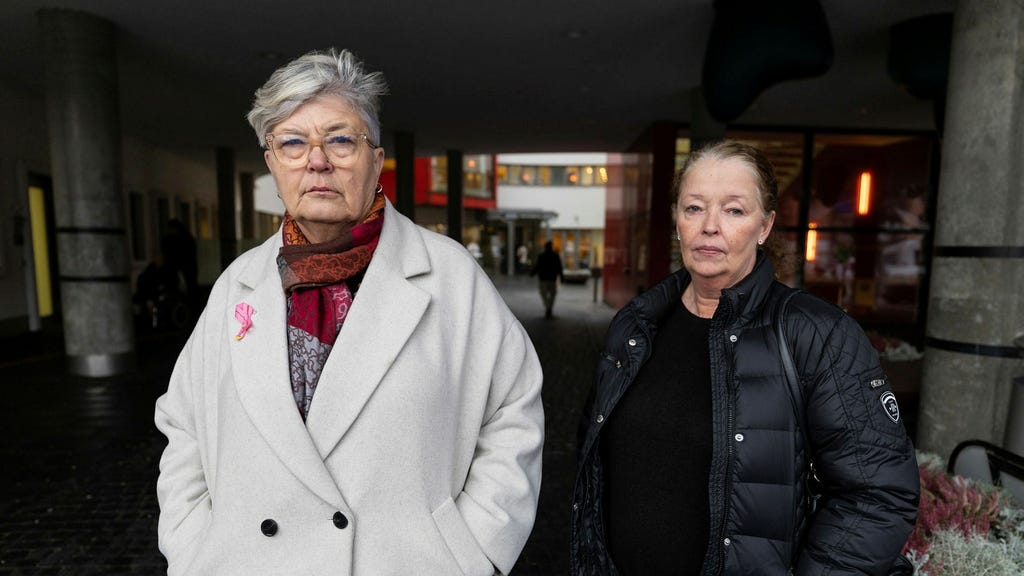A Disturbing Incident Shakes Malmö Hospital’s Sense of Security
On November 27th, a suspected rape at the women’s clinic of Skåne University Hospital (SUS) in Malmö, Sweden, sent shockwaves through the staff and prompted immediate security enhancements. The incident, classified as aggravated rape, triggered a police investigation which, as of two weeks post-incident, has not led to any arrests. While details remain scarce due to the ongoing investigation, reports suggest that a locker room in the hospital’s tunnel system was cordoned off and searched. The hospital confirmed that the victim is a staff member. The incident has understandably heightened anxiety among hospital employees, especially those who frequently use the tunnel system, particularly during evening and night shifts when fewer people are present. The vast network of tunnels, stretching seven kilometers, has long been a source of unease for staff, with concerns over potential unauthorized access.
Fear and Frustration Among Staff as Security Concerns Surface
Pirkko Erden, a union representative working in the emergency department, voiced the growing fear among her colleagues. She highlighted the inadequacy of personal alarms within the tunnel system, explaining that they require a prolonged activation time, creating a vulnerable window for potential attackers. The incident sparked a flurry of calls to the union from concerned staff demanding information and expressing anger that such an event could occur within what should be a safe working environment. Erden pointed out previous security lapses, such as a broken door providing direct access from the emergency room to the tunnel system, which remained unrepaired for months. This incident, while tragic, has finally brought long-standing security concerns to the forefront, prompting hospital management to take action.
Hospital Management Asserts Ongoing Security Efforts and Open Dialogue
Cetin Caliskan, the hospital’s security chief, maintains that over 30 security measures have been implemented across the Malmö and Lund hospital sites in recent years. He emphasized the ongoing dialogue with safety representatives and unions. While acknowledging reports of suspected unauthorized access to the tunnel system, he stated that few cases have been confirmed. In confirmed cases, security personnel acted swiftly. However, Agneta Persson, the chief safety representative at SUS, contradicted Caliskan’s claim, highlighting a systemic failure to collect and deactivate access cards of former employees, hindering the hospital’s ability to control access to its premises. This oversight, she stated, is known to the security unit.
Conflicting Perspectives on Security Protocol and Access Control
Persson stressed the importance of a secure work environment, arguing that employees should not have to fear for their safety while performing their duties. She emphasized the mandatory return of access cards upon termination of employment and the responsibility of supervisors to revoke access privileges, asserting that these procedures have not been consistently followed. Caliskan, however, downplayed the significance of unreturned access cards, arguing that they become mere pieces of plastic once deactivated. He admitted, however, that some employees transferring within the hospital system have retained access to previous areas. To address this, he stated that departments are now required to review access privileges twice a year.
Positive Feedback on Post-Incident Management Amidst Lingering Concerns
Despite the ongoing security concerns, both Persson and Erden expressed satisfaction with the management’s handling of the aftermath of the alleged assault. They commended the security department for holding meetings with staff and the administration for disseminating as much information as possible within the constraints of the ongoing police investigation. Persson acknowledged improvements in overall hospital security, citing the police’s swift response to incidents in the emergency room, an area previously vulnerable due to the presence of gang members seeking medical care. However, she acknowledged the inherent limitations in securing a large complex with multiple buildings and entrances.
The Path Forward: Addressing Systemic Issues and Rebuilding Trust
The suspected rape at SUS has exposed critical security vulnerabilities and raised serious questions about the hospital’s access control procedures. While the hospital administration insists on ongoing security efforts and open dialogue, the accounts of staff representatives reveal a disconnect between policy and practice. The incident underscores the urgent need to address systemic issues, such as the management of access cards and the security of the vast tunnel system, to rebuild trust and ensure a safe working environment for all employees. The ongoing police investigation will hopefully shed light on the circumstances of the incident and inform further security enhancements. The challenge for the hospital now is to effectively implement robust security measures that address both the immediate concerns and the long-standing anxieties of its staff.














